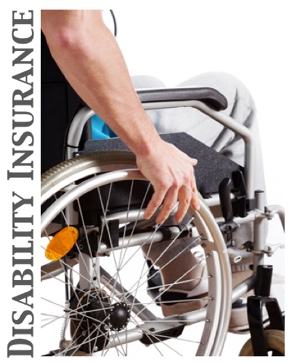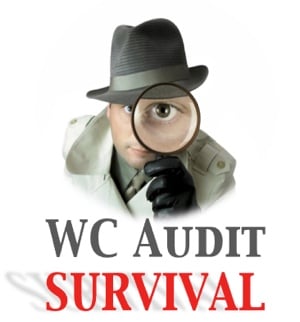 Businesses today face challenges in managing a workers compensation insurance program, and these challenges can seem daunting immediately after a job-related injury.
Businesses today face challenges in managing a workers compensation insurance program, and these challenges can seem daunting immediately after a job-related injury.
Supervisors must make decisions for which they are not trained. Complicated medical questionnaires and claims forms must be filled out, leading to late and inconsistent reporting. These delays can create an opportunity for injuries to be embellished and, therefore, to become more costly.
Once an injured employee enters the medical system, the cost of a claim will escalate. A pre-claim nurse triage program addresses these issues and can provide help for rising workers’ comp costs.
What is Workers Compensation Pre-Claim Nurse Triage?
Telephone triage consists of specially trained nurses who are available 24/7 to receive calls following a worksite accident. This is a pre-claim activity in which the injured employee and a supervisor speak with a nurse who, in turn, assesses the injury and determines medically appropriate treatment. All recommendations come from an evidence-based medical protocol that ensures objectivity and uniformity. If the injury is minor, the nurse will provide first aid instructions that are specific to the injury. More serious injuries are referred to an off-site care facility. All information is recorded at the time of the accident, and the nurse collects all of the necessary data for reporting.
Workers Comp Benefits to the Employer
- The nurse triage system is easy to use.
- Company supervisors are no longer responsible for making decisions on injuries.
- The process is handled in a timely manner, leaving less chance for an employee to exaggerate the injury.
- Workers with minor injuries avoid unnecessary and costly treatment.
- Employees return to work sooner.
- Detailed reports of the incident are completed by the nurse and sent to the company.
- Typically, the money saved from claims reduction is substantially greater than the cost of the triage service.
Workers Comp Benefits to the Employee
- Immediate access to a medical professional who is trained to assess injuries.
- Medical attention is given sooner, resulting in better health outcomes.
- Early medical attention alleviates fears and concerns.
- Medical information acquired by the triage nurse prepares the employee’s primary care physician to determine a course of treatment, if needed.
- The employee is given self-care advice and instructions.
Your Workers Compensation Insurance Program Can Gain a Competitive Advantage
Today, business owners must be proactive and address the risks they face in injury management. In the past, costly trips to the hospital emergency room or unnecessary visits to urgent care and clinics may have adversely affected your bottom line. Pre-claim nurse triage can eliminate many of these trips and make your workers’ compensation program more efficient.
Typically with the use of a nurse triage, half of all sprains, strains, contusions, and lacerations, which collectively comprise about 70% of total injuries, are never entered into the medical system. Instead, a triage nurse is able to direct appropriate first aid treatment, resulting in significant savings.
This valuable program is not only for Fortune 500 companies. Any company, regardless of size, can take advantage of 24/7 nurse triage. Businesses report an average return on investment of 6:1 after one year in the program. Overall, workers comp claims are reduced by 44%. Less time off from work means greater productivity from employees. Add to this the decreased probability of fraud and lawsuits from disgruntled workers, and you have savings that find their way to your bottom line and give you a competitive advantage.
We Can Help Create a Better Workers Comp Insurance Plan
 Workplace injuries occur in the safest companies.
Workplace injuries occur in the safest companies.
Call American Insuring Group at (800) 947-1270 or (610) 775-3848 or click here to contact us for help in creating a better workers compensation plan.



 In the early 1990’s when many states began passing workers compensation insurance acts, there was a prerequisite that any compensable injury had to have a physical impact. That has changed over the years.
In the early 1990’s when many states began passing workers compensation insurance acts, there was a prerequisite that any compensable injury had to have a physical impact. That has changed over the years. To learn more about saving on
To learn more about saving on  All businesses are at risk for some type of damage, liability or loss, and need to ensure that they have the right commercial insurance to protect themselves, their business, and their employees from those risks.
All businesses are at risk for some type of damage, liability or loss, and need to ensure that they have the right commercial insurance to protect themselves, their business, and their employees from those risks. 
 While
While 
 If you own a child care business, you’re probably familiar with the specific rules you must follow and specific certifications you must obtain in order to legally operate your business. In Pennsylvania, child care and early learning providers operating a program for four or more unrelated children must be certified by the Pennsylvania Department of Human Services.
If you own a child care business, you’re probably familiar with the specific rules you must follow and specific certifications you must obtain in order to legally operate your business. In Pennsylvania, child care and early learning providers operating a program for four or more unrelated children must be certified by the Pennsylvania Department of Human Services. To learn more about protecting your business and your customers (both big and small) with the proper commercial liability insurance, give us a call at
To learn more about protecting your business and your customers (both big and small) with the proper commercial liability insurance, give us a call at  Bill is 50-year-old department manager for a mid-sized manufacturer. Even though he has never been seriously ill and has a clean family health history, he was recently told that he has cancer.
Bill is 50-year-old department manager for a mid-sized manufacturer. Even though he has never been seriously ill and has a clean family health history, he was recently told that he has cancer. Get the Right Disability Insurance Coverage
Get the Right Disability Insurance Coverage Do you live under a rock? No? Then it’s pretty safe to say that you’ve heard about the Affordable Care Act (ACA) – Also known as Obamacare - that was signed into law in March 2010.
Do you live under a rock? No? Then it’s pretty safe to say that you’ve heard about the Affordable Care Act (ACA) – Also known as Obamacare - that was signed into law in March 2010.  Get Help - Find the Right Health Insurance for Your Small Business
Get Help - Find the Right Health Insurance for Your Small Business
 Every small business should conduct a risk management assessment prior to reassessing their
Every small business should conduct a risk management assessment prior to reassessing their 
 Every home-based business should be protected by commercial insurance. But the growth of the internet and other technological advancements –such as social collaboration tools and communication apps - have changed the way many of us do business today and significantly influenced the number of small businesses nationwide. In addition, the low start-up costs; the reduction in the cost of commuting, meals, and other expenses; the flexibility; and the savings realized from not maintaining a “storefront” are creating more home-based businesses. Sometimes home-based business owners forget that their homeowner's policy is unlikely to cover them for liabilities that can occur in their business.
Every home-based business should be protected by commercial insurance. But the growth of the internet and other technological advancements –such as social collaboration tools and communication apps - have changed the way many of us do business today and significantly influenced the number of small businesses nationwide. In addition, the low start-up costs; the reduction in the cost of commuting, meals, and other expenses; the flexibility; and the savings realized from not maintaining a “storefront” are creating more home-based businesses. Sometimes home-based business owners forget that their homeowner's policy is unlikely to cover them for liabilities that can occur in their business.
 Workers Compensation Premium Audits - a necessary evil (some would say) for any employer - determines the final cost of your
Workers Compensation Premium Audits - a necessary evil (some would say) for any employer - determines the final cost of your  For more information about premium audits or how to get the best deal on
For more information about premium audits or how to get the best deal on 



